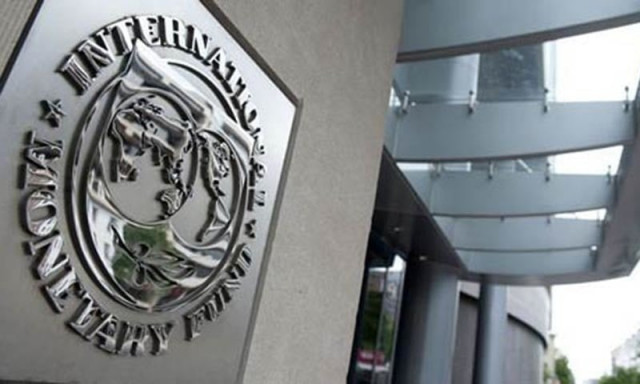IMF keeps govt on a tight leash
Pakistan asks IMF to relax mini-budget, tariff hike conditions

Pakistan has asked the International Monetary Fund (IMF) to relax the conditions for a mini-budget and increase in electricity prices at least till March next year after Prime Minister Khan again shot down both the proposals due to already high prices.
About 10 days ago, the Ministry of Finance had sought the prime minister’s approval for these steps to restore the $6 billion IMF programme that remains suspended since February this year, highly placed sources told The Express Tribune.
The IMF is seeking an increase of Rs1.48 per unit in electricity prices, additional taxation measures to achieve Rs4.963 trillion annual tax target and amendments in the State Bank of Pakistan Act of 1956 and Nepra Act.
The IMF sees a gap of over Rs300 billion between the tax target and the projected collection, the sources said.
The main taxation proposal is to increase the sales tax rates on all items, except medicine and food, to the standard 17%, which will generate a revenue of over Rs300 billion for the Federal Board of Revenue, the sources said. At present, GST rate on many items has been changed to as low as 3%.
They said that the premier declined to endorse the proposals as people were already facing the brunt of double-digit food inflation and constantly increasing cost of living. Pakistan is witnessing a surge in coronavirus cases, which may force the government to curtail business and commercial activities, the sources said.
The likely postponement of these drastic steps could have serious implications for early restoration of the IMF programme, although the government and the fund are showing keenness “to remain engaged”.
But the talks have not completely derailed and Finance Adviser Dr Abdul Hafeez Shaikh is trying hard to convince the IMF to accept Pakistan’s position on both the crucial issues.
The development highlights the challenging political and economic situation that has now made it difficult for the government to take tough but politically unpopular decisions.
The government’s contention is that it will fuel inflation that has already increased by 20% in the past two years.
March is also crucial for Premier Imran who seeks to consolidate his grip on power after the upcoming Senate elections.
The sources said that Shaikh also made an appeal to IMF Managing Director Kristalina Georgieva last week, urging her not to link restoration of the programme with immediate additional tax measures.
The $6 billion Extended Fund Facility (EFF), approved in July last year, got derailed in the seventh month of the fiscal year after the government could not introduce a mini-budget and increase the electricity rates. These two actions were prior conditions set for taking the second review to the IMF board for approval.
The sources said that Shaikh was of the view that additional measures could push more people into poverty, as the country had high inflation and no real increase in wages for the last two years.
Shaikh told the IMF MD that Pakistan was not in an election mode and the government was seeking postponement of the measures purely on human grounds, the sources said. He is said to have argued that taking drastic measures at this time may also bring bad name to the IMF.
“The IMF team and the Pakistani authorities remain closely engaged with a view to bring the second review of the EFF to a positive conclusion,” Teresa Daban, the resident representative of the IMF, said on Monday.
She had been requested to comment whether a scheduled October 12-19 IMF Mission to Pakistan had been postponed due to the government’s inability to meet prior actions and was it correct that Pakistan requested the IMF to delay the mini-budget and tariff hike till March next year.
The sources said that an assessment on tax collection made by newly appointed Special Assistant to Prime Minister on Revenue Dr Waqar Masood also suggested that the government was off the track in achieving the annual target.
The FBR had collected about Rs1 trillion in taxes in the first quarter, which was about Rs145 billion lower than the quarterly level needed to attain the annual target. However, the Rs1 trillion collection was higher than the first quarter target of Rs970 billion.
It is said that Masood is not happy with the current top tier of the FBR and there have been at least two incidents in one week in which there were serious differences in opinion of the special assistant and Inland Revenue Operations member, the sources said.
The sources said that the FBR members have taken this issue up with the finance advisor, seeking his directions over the role and responsibilities of Masood. The FBR members also met with the finance secretary and conveyed their grievances to him, the sources said.



















COMMENTS
Comments are moderated and generally will be posted if they are on-topic and not abusive.
For more information, please see our Comments FAQ